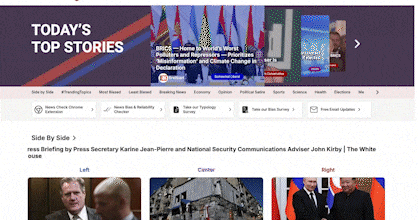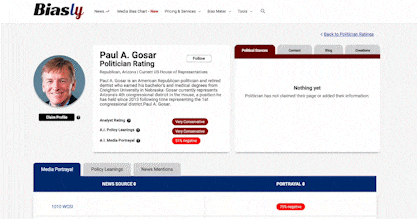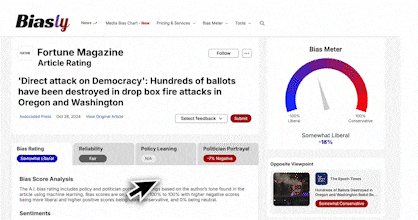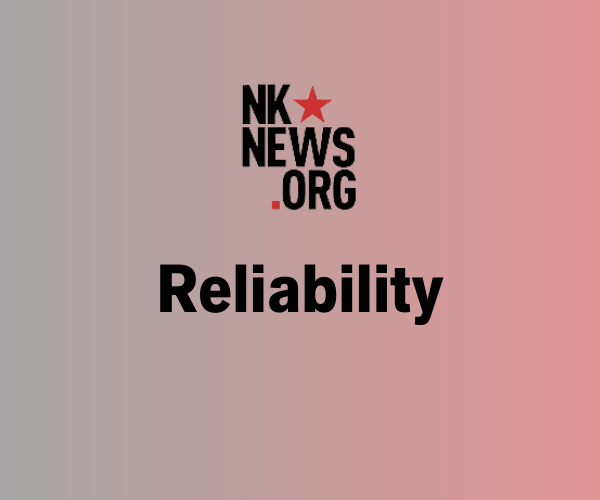
Established in 2010, North Korea News is an independent and privately owned news source that focuses on events in North Korea. It provides authoritative news, as well as opinion and analysis articles. Its staff is located in the U.S., Europe, and the Republic of Korea.
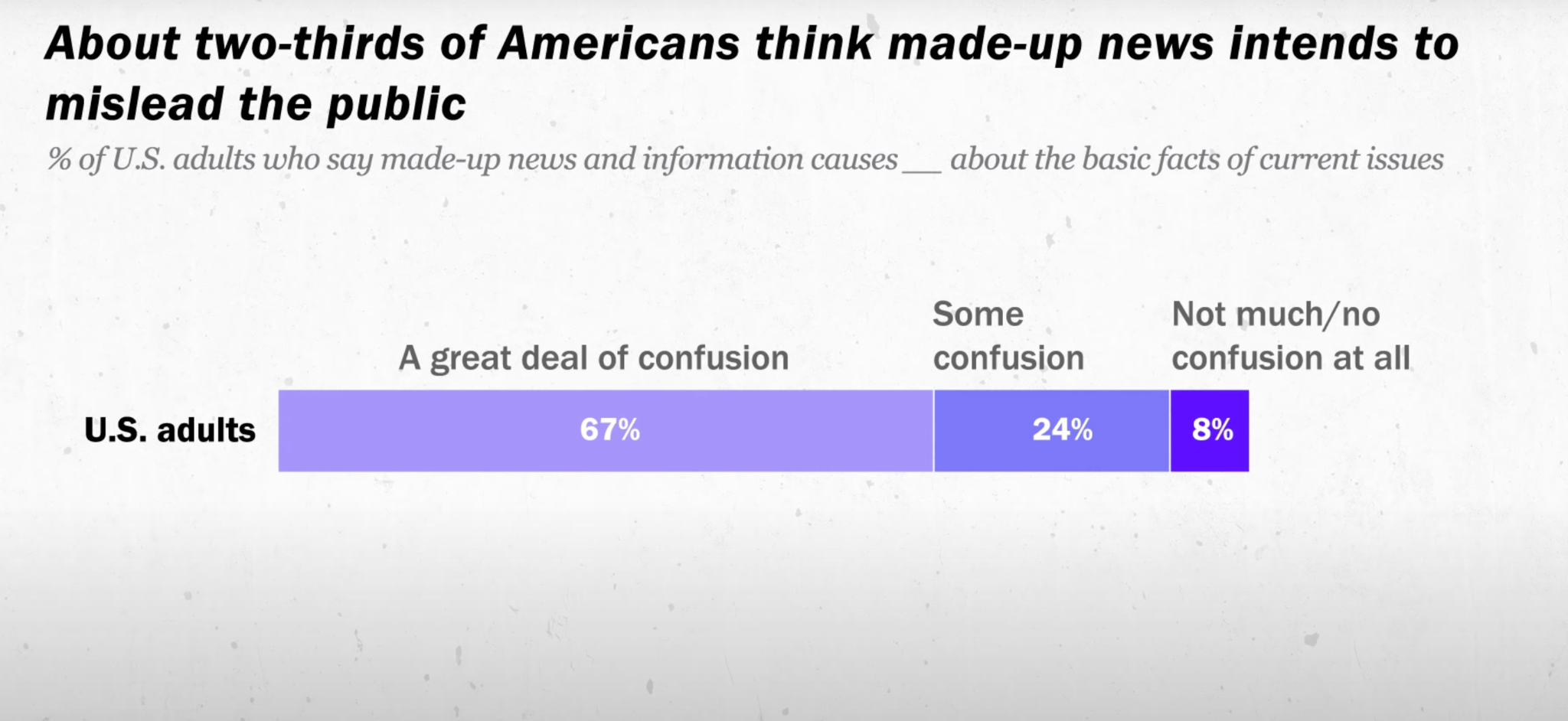
Source: Pew Research
Is North Korea News as truthful as reported, or should people be skeptical about it like they are with other news sources? Through analysis, we will determine the reliability of North Korea News.
Does Reliability Matter?
Reliability, in general, refers to how trustworthy or accurate information, or in this case, a news source is. If we consider this definition, it quickly becomes clear why reliability is important in media sources. If we can’t trust the things we read then there isn’t much of a point in continuing to consume content from that source, after all. So how exactly can we gauge the reliability of a news source anyway?
There are several potential measures of reliability to look out for when trying to determine whether a media source is reliable or not. Red flags for an unreliable article can include wild unsubstantiated claims, facts dependent on other unreliable sources, heavy use of opinionated language, and more. Some indicators of a reliable news source, on the other hand, include things like:
- Absence of subjective/opinionated language in articles
- Credible sources cited (e.g., neutral sources, .gov, .edu websites)
- Facts and statistics backed by multiple relevant outside sources
- Use of primary sources when possible (e.g., interviews, quotes)
- Information that remains consistent across news sources
So How Does North Korea News Fare in its Reliability?
The political reliability index developed by Biasly objectively assesses news organizations’ accuracy and trustworthiness. North Korea News’s overall Reliability Score has been rated as ‘Good‘ by Biasly. This rating is a weighted average of two distinct scores: the Fact Analysis Score and the Source Analysis Score, each evaluating separate components of North Korea News’s Reliability. When computing the Average Reliability of the article the Fact Analysis score is more heavily weighted. These ratings are as follows in the next two paragraphs:
- North Korea News’s Fact Analysis Score is ‘Good,’ which suggests readers can trust most of its content online. The Fact Analysis score focuses more on the accuracy of claims, facts, and sources presented in the article and any hints of selection and omission bias, which we will discuss further in the article.
- North Korea News’s Source Analysis Score is ‘Poor,’ which suggests readers cannot trust some of the sources, links, and quotes provided by the news source. The A.I. Reliability score focuses on assessing the quality of sources and quotes used including their number, lengths, uniqueness, and diversity.
However, since these scores are based on percentages and averages, individual articles could be more or less trustworthy depending on the context, author, and other factors.
Next, we will analyze the data for North Korea News’s scores and discuss the factors that determine the reliability of a news source.
North Korea News Accuracy and Reliability
We will determine North Korea News’s reliability and see how well its articles are supported by evidence. To do this, we will review the articles’ accuracy, and search for selection and omission biases.
Selection bias is when stories and facts are selected or deselected, often on ideological grounds, to create a narrative supporting the new sources’ ideology. Omission bias, on the other hand, is when different opinions and political views regarding a situation are left out so that the reader is only exposed to the ideological perspective supported by the author. It’s important to keep in mind these two types of biases when trying to assess an article’s level of accuracy.
Biasly measures accuracy through percentage scores, with 1% meaning least accurate and 100% meaning most accurate. These scores are determined by weighing claims with evidence, the amount of reliable internal sources, and the amount of reliable external sources. As previously mentioned, Biasly has given North Korea News a Good reliability score. However, this score is different for each North Korea News article, depending on bias, omissions, and selections. Another news source to consider is ABC News, which has been labeled as Somewhat Liberal and given a Good reliability score by Biasly. One of this source’s articles, titled “House passes anti-Asian hate crimes bill, legislation awaits Biden’s signature”, received a Good reliability score, while another, called “Biden takes the long view: ‘It’s a matter of timing,’ he says of presidency, agenda”, received a Fair reliability score.
The first North Korea News article we will observe is “Chinese court sentences DPRK consultant Michael Spavor to 11 years in prison”, which is classified as Somewhat Conservative. The author, Won-Gi Jung, does well at procuring statements from Spavor, Canadian officials, cities, and citizens, as well as U.S. President Biden. However, there are no comments from the Chinese court that sentenced Spavor, or from any member of the Chinese government. Throughout the story, there is an emphasis on Canada’s disagreement with Spavor’s sentence, as well as their urge to have him released. Every comment used disagrees with the detainment, causing the detainment of Spavor to be portrayed as completely negative throughout the article.
Because of this, there is an imbalance in the types of sources used. If Jung had included statements from the Chinese court or government, readers would gain a more well-rounded view of the situation. In conclusion, this article can be marked as mostly reliable.
We will now look at more of North Korea News’s articles to continue the assessment of its reliability. This time, we will examine its selection bias, omission bias, and the quality of its sources and facts used.
Analysis of Reliability in North Korea News Opinion Pieces
While strong opinions are often avoided in news articles, opinion pieces allow authors to express their views. They are considered less reliable since they are subjective, but can still improve readers’ understanding of certain topics.
Quality of Sources and Facts Used
While North Korea News has done well at citing reliable evidence, some articles fall short in this area. An example of this is the story “North Korea is teaming up with China and Russia to violate human rights”. Here, only two quotes are included, both of which are short. When observing the reliability of an article, long quotes are taken as a sign of higher reliability.
Alongside the quotes are 13 sources:
- North Korea Pro article “How Camp David summit deals on North Korea complicate peninsula security” (Center)
- North Korea News article “Russian media provides clearest evidence to date of North Korean arms in Ukraine” (Center)
- North Korea News article “Russia launched multiple North Korean ballistic missiles into Ukraine, US says” (Center)
- The U.N. Human Rights Council’s Report of the Commission of Inquiry on Human Rights in the Democratic People’s Republic of Korea
- Reuters’s news article “Up to 600 North Korean defectors deported by China ‘vanish’ – rights group” (Center)
- The State Council Information Office of China’s “briefing about the philosophy and practice of the Communist Party of China on respecting and protecting human rights” (Extremely liberal)
- The U.N article “Security Council Imposes Fresh Sanctions on Democratic People’s Republic of Korea, Including Bans on Natural Gas Sales, Work Authorization for Its Nationals” (Extremely conservative)
- The U.N. article “Security Council Tightens Sanctions on Democratic People’s Republic of Korea, Unanimously Adopting Resolution 2397 (2017)” (Moderately liberal)
- An article from The JoongAng (a South Korean daily newspaper) titled “North Korean Workers Are Active in the Middle of the Russian” North Korea Openly Launched a Foreign Currency Campaign”
- North Korea Pro article “Russia Firms Employing North Koreans to Build Houses in Far East” (Center)
- North Korea News article “Vladimir Putin meets Kim Jong Un at spaceport, offers to help build satellites” (Center)
- North Korea News article “UN condemns North Korean human rights abuses for 19th straight year” (Center)
- The North Korea News article “US and North Korea debate DPRK satellite launch at Security Council meeting” (Center)
There is a good number of sources used. Another success of the article is the leanings of its sources. Most of them are centered, rather than expressing extremely left or right views. Yet, they still come from all parts of the political spectrum, including centrist, liberal, and conservative. Also, every source is a non-opinion piece, meaning that each one focuses on facts. However, there is not a very diverse selection of sources: 7 sources are from either North Korea News itself, or its sister platform, North Korea Pro. Another 3 are all from the United Nations Human Rights Council. The article could be improved if the author used more diverse sources.
The sources prove themselves to be accurate. For example, the author of “UN Condemns North Korean Human Rights Abuses for 19th Straight Year” explains the idea that human rights are being connected to security issues by including a quote describing North Korea:
“funds its illicit nuclear weapons and ballistic missile programs through human rights violations and abuse, such as forced labor.”
Another instance is in “Vladimir Putin meets Kim Jong Un at spaceport, offers to help build satellites”, which claims that Moscow will help North Korea create satellites. The author supports this by writing:
“‘That’s why we came to Cosmodrome Vostochny,’ RIA Novosti quoted him as saying. ‘The DPRK leader shows great interest in rocket technology. They are also trying to develop space [programs].’”
Selection and Omission Bias
It should also be noted that North Korea News articles may have selection and omission biases. For example, in “Seoul to take DNA samples from bodies North Korea refuses to repatriate”, the author includes several comments from those who approve of South Korea’s decision to take DNA samples from the bodies. For instance, the author writes:
“The ministry stated that the decision to amend the law is an ‘expansion’ of the existing databasing initiative that is used to identify families that were separated during the Korean War. It also said it was an effort to promote ‘humanitarianism, compatriotism and human rights.’”
However, there are no comments from anyone in North Korea on the issue. The focus on those in support of South Korea’s choice, combined with the omission of North Korea’s stance, causes its readers to perceive the topic with only one viewpoint, which reduces its reliability. A significant aspect of a reliable article is the inclusion of conflicting arguments, which ensures that it is an analysis article and not an opinion piece.
The choice of sources is also biased, as most of them are from North Korea News itself. The fact that many of the sources come from North Korea News also reveals that the article used mostly center and conservative sources.
Another article from North Korea News that will be examined is “Tensions rise as another top DPRK official blasts Seoul over US-ROK drills”, which Biasly rated as Somewhat Conservative.
A critical tone is created when the author includes multiple quotes denouncing the US-ROK drills:
“‘As we have already clarified, we will make them realize by the minute what a dangerous choice they made and what a serious security crisis they will face because of their wrong choice,’ Kim said in a statement published by North Korea’s state-run Korean Central News Agency (KCNA).”
“‘They must be made to clearly understand how dearly they have to pay for answering our good faith with hostile acts after letting go the opportunity for improved inter-Korean relations,’ Kim Yong Chol said.”
The focus on these quotes, along with other similar quotes, displays criticism of South Korea for moving forward with the drills.
8 of the 10 quotes in the article come from North Korean officials, who criticize South Korea for moving forward with the drills. This selection of quotes that support North Korea’s side of the issue causes readers to mostly only see North Korea’s views, and not the other side’s.
However, Chung does quote both North and South Korean officials but just not as much. For instance, after using the previously mentioned quotes from Kim Yong Chol, the article states:
“’Escalation of military tension on the Korean Peninsula does not help anyone,’ the ROK government said.”
“‘The government emphasized that in order to meet peace and stability and develop inter-Korean relations, a dialogue between South and North Korea should resume as soon as possible,’ the South Korean government said.”
While there is an imbalance in the number of quotes from each side, the author succeeds in ensuring that neither view of the issue is completely omitted.
The choice to include comments from those on the other side of this issue results in an informative tone that relays all the facts rather than focusing on one side.
Therefore, by citing people with opposing views on the US-ROK drills, Chung maintains objectivity and equips readers with a sufficient view of the issue discussed in the article.
While examining the accuracy of the news, issues with factuality, sources, selection, and omission arise often. The North Korea News articles that have been covered are somewhat biased and contain multiple instances of excluding information that conflicts with the authors’ views. But since we have identified what makes an article trustworthy, you can determine for yourself which articles are the most reliable.
So Is North Korea News Reliable?
In conclusion, North Korea News is a pretty-reliable news source, with various levels of factuality. To determine the reliability of a source, readers can analyze the sources, selection, omission, and accuracy of its articles. A useful tool for doing this is Biasly’s News Bias Checker, which identifies reliability issues and assists in finding truly accurate news.






















